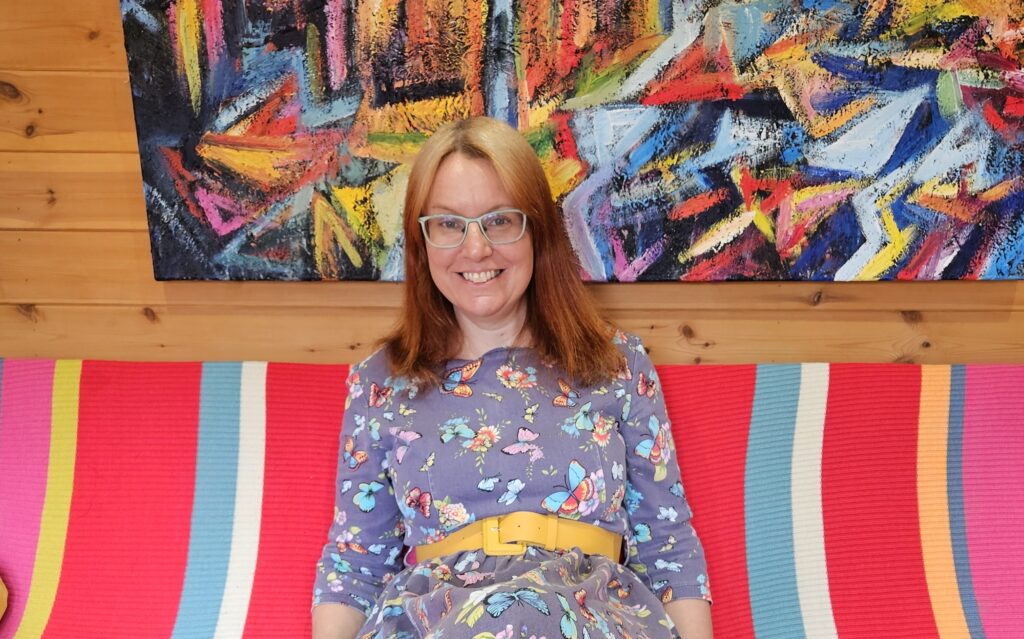By Immy Burgess and Cheri Dermott
As part of the 16 Days of Activism Against Gender-Based Violence Festival at Manchester Met, poet and PhD Caroline Stancer shares her advice for young activists and poets, thoughts on how art can be a response to societal issues and be a form of activism and what the campaign means to her.
Can you tell us about how you got involved with the 16 Days Activism campaign?
I’m a PhD student at Manchester Met and Kim Moore, who is organising the 16 Days of Activism festival, is one of my supervisors. I’m studying representations of toxic masculinity in contemporary poetry, so I’ll be looking a little bit at contemporary poetry more widely and representations of toxic masculinity. I’m also [researching the work of] four poets: Terence Hayes, Ocean Vuong, Fiona Benson and Harry Josephine Giles.
I’m especially looking at representations of masculinity that show resistance and recovery, so it’s the idea of representations of masculinity that resist those toxic ways of being so it really fits with the 16 Days of Activism. Quite a lot of my poetry is around gender-based violence and representing that in lots of different ways from lots of different perspectives.
Do you have any advice for young poets who wish to tackle these difficult societal themes in their work?
Read, read, read loads of poetry! Maybe start with the poets that I mentioned, but also read all around the area as well. [I’d recommend] reading lots of work about gender. Part of my methodology is going to be using auto theory, which is using your own personal experience blended in with theory to cast light on the theory, and for the theory to speak back to your personal experience. There are lots of brilliant writers who are writing around gender, which would be really great for parents to read, like Maggie Nelson, who wrote the Argonauts, which would probably be a good place to start as well.
Can you give us a sense of what we can expect to hear at your event?
Frazer has written a book analysing how incels use language within incel communities online to construct ideas about women and race using all these particular terminologies that have developed in that online space. He will give a really good, clear and interesting introduction to incel online culture, which is quite a hidden phenomenon, but is actually having an increasing influence and it’s really important for us to understand, particularly in the light of what’s happening in America, which has already been shown to have emboldened these kinds of misogynistic online elements. He also writes about the implications of this for the radicalisation of young men and the way that those communities are growing and attracting a lot of vulnerable young men and then getting caught up in those ideologies.
My contribution brings in a whole added element, which is ‘How can art respond to phenomena like that? What can poetry do in response?’ and some of my answers to that would be just to represent and raise awareness of what’s happening, but also to embolden and empower women or people of any gender. I think poetry is powerful because it can be sort of multivocal. Using my work on mythology as an example, one of my poems is speaking in the voice of a selkie, which is a seal that turns into a woman, and so, you can speak in any voice and represent anything.
I’ll be sharing my poetry addressing themes like incels, objectification, power over bodies, slut-shaming, and gender ideology. While the topics may sound really heavy, hopefully they’re not when you hear them.
What does the 16 Days of Activism campaign mean to you?
It’s about having a focus. My research focuses on those issues, but this is a chance to bring them to light in the public arena and to give people a chance to discuss them and interact with them and maybe get support with them as well. I think it can be quite isolating, and maybe frightening at times, thinking about those issues and thinking about those things getting worse at the moment. There’s something powerful about coming together, feeling empowered, and being part of a supportive community.
Join poet Caroline Stancer and Dr Frazer Heritage on Thursday 28th November at 11am. Book your tickets here.
The 16 Days of Activism Against Gender-Based Violence Festival runs from 25th November to 10th December, 2024. For more information and tickets, visit mmu.ac.uk/news-and-events.






Leave a reply